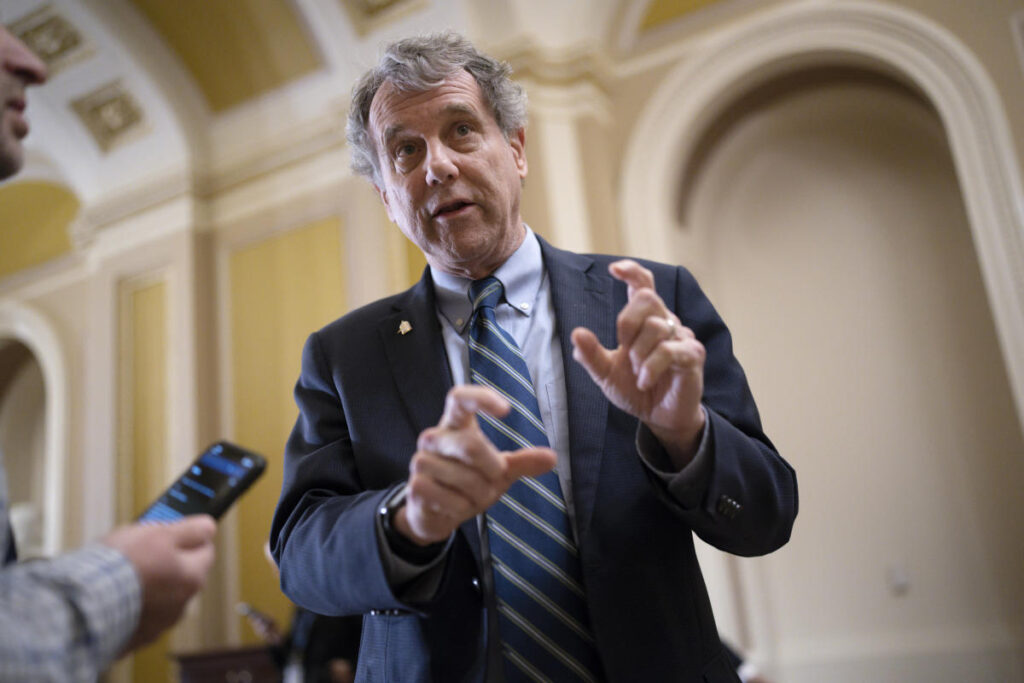Former Ohio Governor Bob Taft, a member of one of Ohio’s most prominent Republican families, has publicly endorsed Democratic Senator Sherrod Brown in the upcoming election against Republican nominee Bernie Moreno. Taft, who is 82 years old and a prominent figure in Ohio’s political landscape, made this announcement through a letter to the editor in the Dayton Daily News, thereby revealing his intention to vote for Brown. In his letter, Taft, who is the grandson of the celebrated Republican figure Robert A. Taft Sr. and the great-grandson of former President William Howard Taft, voiced praise for Brown’s capabilities without directly mentioning Moreno, indicating a clear preference for the Democrat in the race.
Taft articulated several reasons for his endorsement, emphasizing Brown’s track record of collaboration with U.S. Representative Mike Turner, a Republican from Ohio, particularly in tasks beneficial for the Dayton area and the Wright-Patterson Air Force Base. He praised Brown’s extensive 25 years of experience in public service and highlighted Brown’s influential committee positions as a senior senator. Taft’s support underscores his belief that Ohioans need an “effective, experienced advocate” in the Senate, someone dedicated to addressing both state and national issues, despite some policy disagreements they may have.
With Ohio’s recent electoral trends showing a significant shift to the right, Taft’s endorsement raises questions about its potential impact at the polls. Senator Brown is currently focused on attracting independent and Republican crossover voters amidst a highly competitive election environment, with total campaign spending surpassing $400 million. The landscape in Ohio has been shaped increasingly by pro-Trump sentiments, which could influence the reception of differing endorsements from traditional Republicans.
Moreno, who has received endorsements from former President Donald Trump, has become a representative of a more hardline faction of the Republican Party. This endorsement from Trump helped propel him to victory in the competitive Republican primary earlier this year, despite opposition from mainstream Ohio Republicans, including Governor Mike DeWine and former Senator Rob Portman, who supported other candidates. The Ohio GOP has seen significant influence from Trump loyalists, which may challenge Brown’s coalition-building efforts among moderate and independent voters.
The significance of Taft’s endorsement is amplified by history; he is notably the only politician to have defeated Brown in an electoral contest. Taft’s win over Brown in the 1990 election for secretary of state marks a rare blemish on Brown’s political record, adding weight to Taft’s unprecedented support for Brown in this challenging election. This endorsement serves as a reminder of the often complex alliances and shifts in political loyalties that can occur in the evolving political landscape.
In the context of Brown’s reelection bid, Taft’s backing may represent an opportunity for the senator to draw in conservative or moderate voters who may otherwise lean Republican. As campaigning intensifies leading up to the election, the dynamics between traditional Republican endorsements and Trump-aligned candidates will be crucial to watch, especially given the turbulent nature of Ohio GOP politics. Ultimately, Taft’s letter reflects broader tensions within the party while also presenting a potential pathway for Brown to consolidate support beyond his Democratic base.

